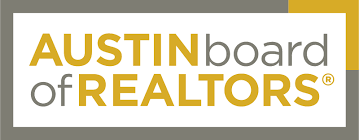Introduction
Receiving multiple offers on your home is an exciting yet challenging situation. While it’s great tohave options, choosing the best offer requires careful evaluation and strategy. The highest offerisn’t always the best, and making the right decision can impact your financial future.
This guide will walk you through how to handle multiple offers like a pro. From assessing keyoffer terms to leveraging competition for the best deal, you'll gain insights to navigate thisprocess with confidence.
Understanding the Market Landscape
Before diving into multiple offer scenarios, it's essential to understand what’s driving demand foryour home. Are you in a seller’s market with low inventory and high demand? If so, you’re in aprime position to maximize value. Conversely, if the market is shifting, your strategy might needadjustments.
Key Indicators of a Seller’s Market:
● Low housing inventory
● High buyer demand
● Homes selling quickly, often above the asking price
● Frequent bidding wars
If these conditions apply to your area, multiple offers are likely, and you should be prepared tohandle them effectively.
Reviewing and Comparing Offers
Not all offers are created equal. While price is a major factor, there are other critical elements toconsider.
Important Factors Beyond Price:
1. Financing Type & Strength – A cash offer often carries more certainty than amortgage-backed offer, which may be subject to lender approval and appraisalcontingencies.
2. Contingencies – Offers with fewer contingencies (such as inspection, financing, orhome sale contingencies) typically provide a smoother path to closing.
3. Earnest Money Deposit (EMD) – A larger EMD signals a buyer’s strong commitment.
4. Closing Timeline – Does the buyer’s preferred closing date align with your plans?
5. Buyer’s Flexibility – Some buyers may offer perks like leaseback options, allowing youextra time to move.
Strategies for Handling Multiple Offers
1. Set a Deadline for Offers
Once you receive multiple offers, you can set a deadline for final and best offers. This ensuresall interested buyers submit their strongest proposals, giving you maximum leverage.
2. Use a Counteroffer Strategy
You can negotiate with one or multiple buyers simultaneously. Here are two commonapproaches:
●Best and Final Offer Request: Ask all buyers to submit their highest and best offers.
● Selective Counteroffers: Counter one or more offers based on terms you’d likeimproved, such as price, contingencies, or closing date.
3. Leverage a Bidding War (Ethically)
Informing buyers that there are multiple offers can encourage stronger bids. However, avoidmisleading buyers, as unethical practices can damage your credibility and result in lost offers.
4. Evaluate Buyer Motivation
A well-motivated buyer is less likely to back out of the deal. Look for buyers who:
● Have been pre-approved (not just pre-qualified) for a mortgage.
● Have a strong reason for purchasing, such as job relocation or a growing family.
● Submit personal letters expressing their interest in your home (if applicable and allowedin your market).
Avoiding Common Pitfalls
1. Getting Blinded by the Highest Offer
The highest bid isn’t always the best. If it comes with numerous contingencies, financinguncertainties, or unrealistic demands, it may not be your best choice.
2. Overcommitting to One Buyer Too Soon
If you receive several offers, don’t rush to accept the first one. Review all terms carefully andconsider your options before committing.
3. Ignoring Backup Offers
Even if you accept one offer, keep a strong backup offer on hand in case the first deal fallsthrough. Buyers sometimes back out due to financing issues or inspection results.
4. Disregarding Appraisal Concerns
If a buyer is financing the purchase, an appraisal will determine if the home’s value supports theagreed-upon price. If the appraisal comes in lower than the offer price, be prepared torenegotiate or request appraisal gap coverage from the buyer.
Working with a Real Estate Professional
An experienced real estate agent can provide guidance, negotiate on your behalf, and help youassess offers objectively. They can:
● Analyze market trends to set an optimal listing price.
● Manage negotiations professionally.
● Ensure legal and procedural compliance during the sale.
Final Thoughts: Making the Right Choice
Handling multiple offers effectively requires a mix of strategy, patience, and informeddecision-making. By evaluating all aspects of an offer—not just the price—you can secure thebest deal for your home sale.Are you navigating multiple offers? Consider consulting a real estate expert to help youmaximize your sale and avoid common pitfalls. Whether you're selling now or planning for thefuture, being prepared can make all the difference!




